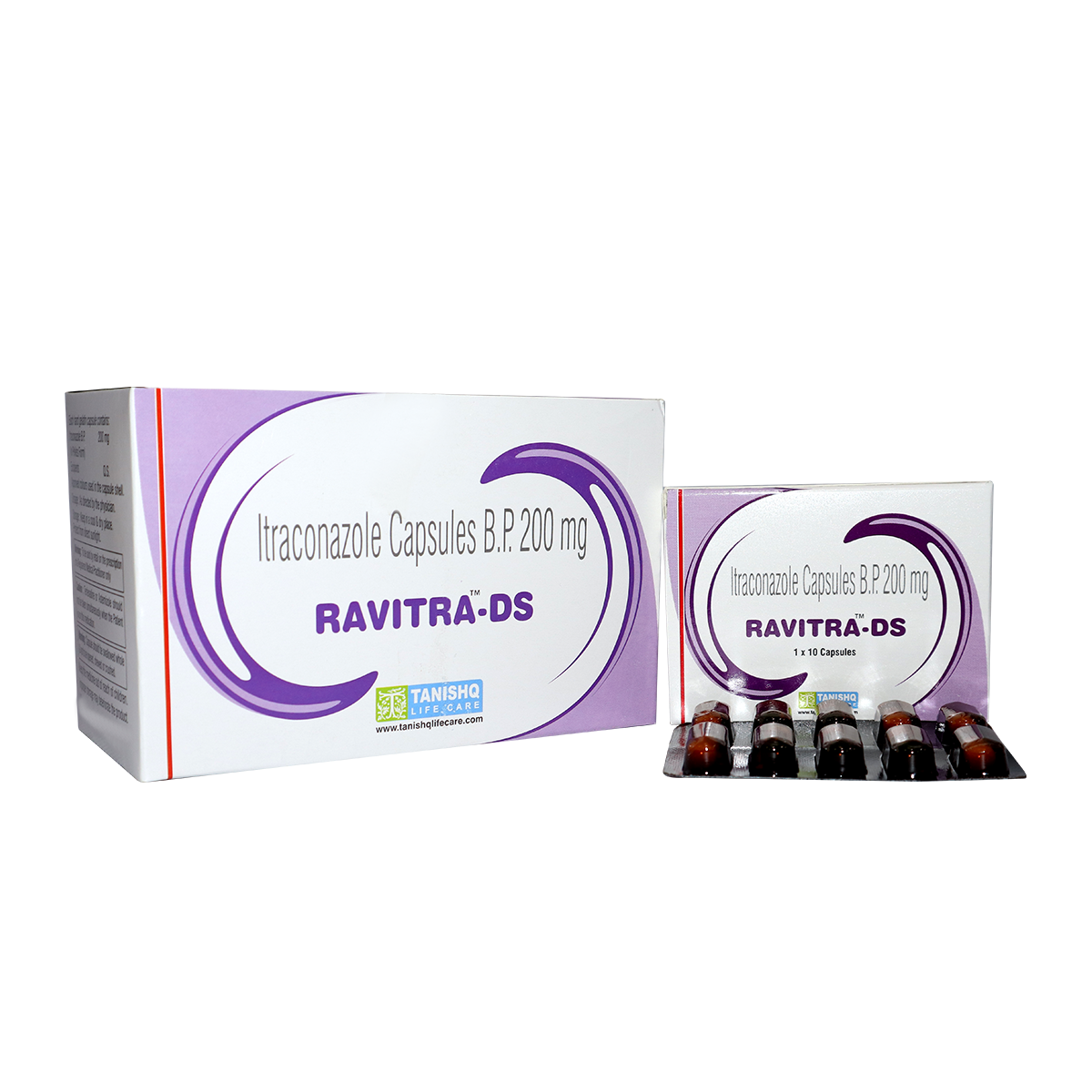
Ravitra DS
Itraconazole 200mg capsules are a strong antifungal medication used for the treatment of various fungal infections. It belongs to the class of azole antifungals, which work by inhibiting the synthesis of ergosterol, a critical component of fungal cell membranes, leading to fungal cell death.
- Recommended Usage
Indication
- Systemic fungal infections, including:
o Aspergillosis (lung infection caused by Aspergillus species)
o Histoplasmosis (fungal infection of the lungs and other organs)
o Blastomycosis (fungal infection affecting lungs and skin)
o Candidiasis (including bloodstream infections and deep tissue infections)
o Onychomycosis (fungal nail infections)
o Sporotrichosis (a skin infection caused by the fungus Sporothrix)
- Fungal skin infections that require oral treatment.
Dosage and Administration
Typical Dosage: The usual dose for most fungal infections is 200 mg once or twice daily. The dose may vary based on the infection.
o Onychomycosis: 200 mg once daily for 12 weeks.
o Aspergillosis: 200 mg twice daily for the required duration.
Instructions: Take the capsule with food to enhance absorption and reduce stomach upset.
Duration: Treatment length varies depending on the infection type and severity. Typically, it may last several weeks to months for deep or chronic infections.
Precautions
Liver Disease: Itraconazole can cause liver toxicity. Use with caution in patients with pre-existing liver conditions, and liver function should be monitored during treatment.
Heart Conditions: Use cautiously in patients with heart failure or other cardiovascular issues, as itraconazole can potentially cause heart problems such as QT prolongation.
Pregnancy: Not recommended during pregnancy unless absolutely necessary, as itraconazole can harm the developing fetus.
Drug Interactions: Itraconazole interacts with numerous drugs, such as warfarin, benzodiazepines, antacids, and statins. Always inform your healthcare provider about all medications you're currently taking.
Side Effects: Possible side effects include nausea, vomiting, diarrhea, headache, dizziness, liver enzyme elevations, and skin reactions. Severe reactions like jaundice or unusual bruising require immediate medical attention.
Product Category
- Anti Infective
- Injectables
- Pre Filled Syringe
- Immunosuppressants
- Anti Ulcerant/ppis
- Joint Care
- Enzymes
- Heamatinic Agents
- Antioxidant Multivitamins
- Laxatives
- Anti Alergic
- Corticosteroids & Combinations
- Anti Fungal
- Medicated Soaps
- Emollients and Moisturisers
- Face Care
- Puva & Sun Protectors
- Hair Care
- Anti Acne Preparation
- Analgesics Antipyretics & Anti Inflammatory
- Anti Spasmodic & Anti Emetic
- Expectorants Antitussives & Mucolytics
- Antidiarrheals
- Cardiac Drugs
- Antipsychotics
- Anti Epileptics
- Migraine
- Anti Dyspetic
